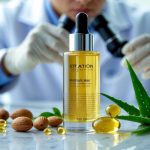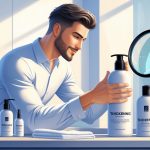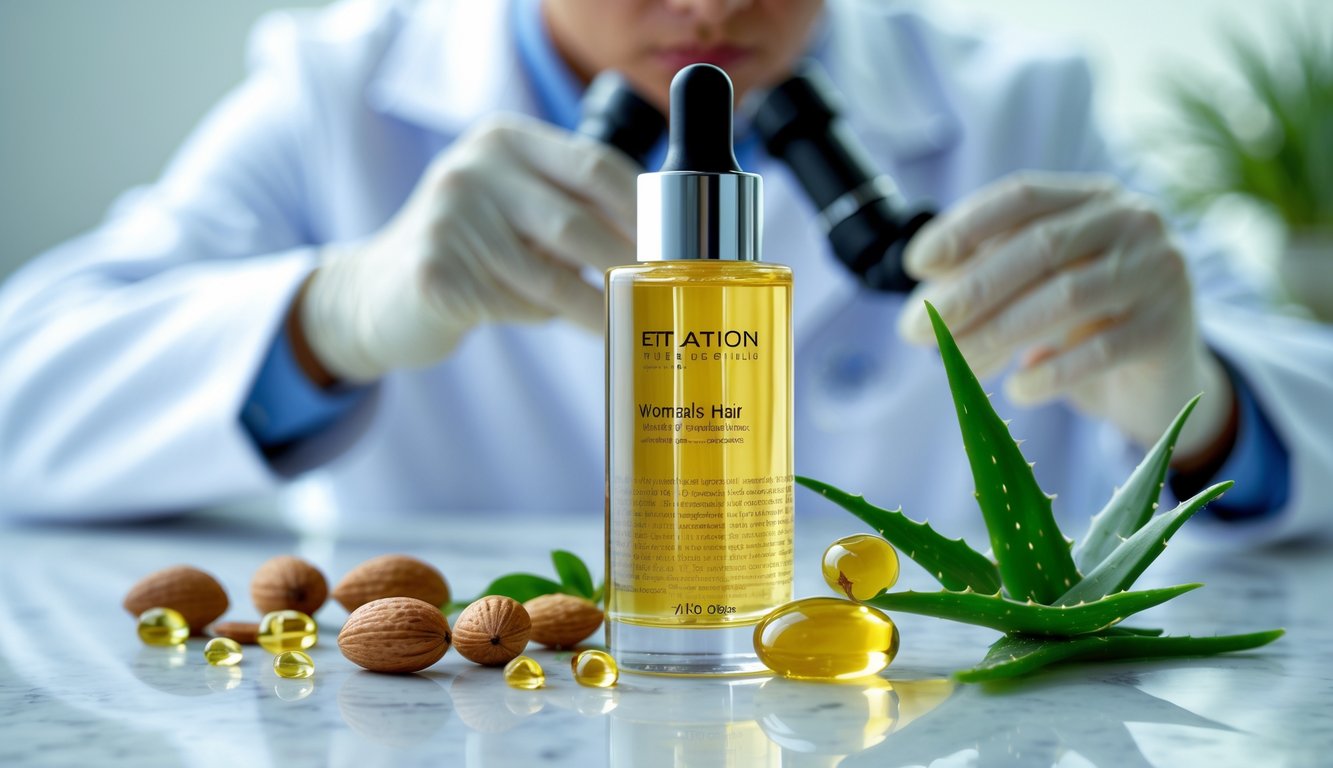
Okay, wait—why is caffeine suddenly on dermatologists’ “maybe not” list for women’s hair serums? For years, it’s been the darling of every shiny bottle, right up there with peptides and biotin. I’ve tried so many brands it’s honestly embarrassing, and every one brags about caffeine. Health and Allure’s 2025 picks? Basically a caffeine parade. Now, though, dermatologists admit there’s just not much solid evidence caffeine serums actually regrow women’s hair in any meaningful way. All those shelves, all that hype, and… for what?
But here’s the kicker: I just blew $60 on “Caffeine Volumizing Miracle-Drops.” My dermatologist—Dr. Jessa, who’s both board-certified and suspicious of, well, everything—rolled her eyes and muttered about “placebo-driven trends.” So, what, am I just seeing things in those before-and-after photos? Are we all just desperate and gullible, or is there a shred of hope in every overpriced drop? It’s wild how some ingredient gets hyped, then suddenly the experts backpedal, leaving my bathroom looking like a chemistry set built by a confused crow.
Meanwhile, actual research—Cleveland Clinic, if you care—still puts minoxidil and finasteride at the top for real results. Everything else? It’s just floating around in marketing limbo. And the labels… don’t even get me started. “Dermatologist-recommended” often means someone somewhere said something vaguely positive in a blog post. I could slap that on a bottle of tap water and call it a night.
What Are Women’s Hair Serums?
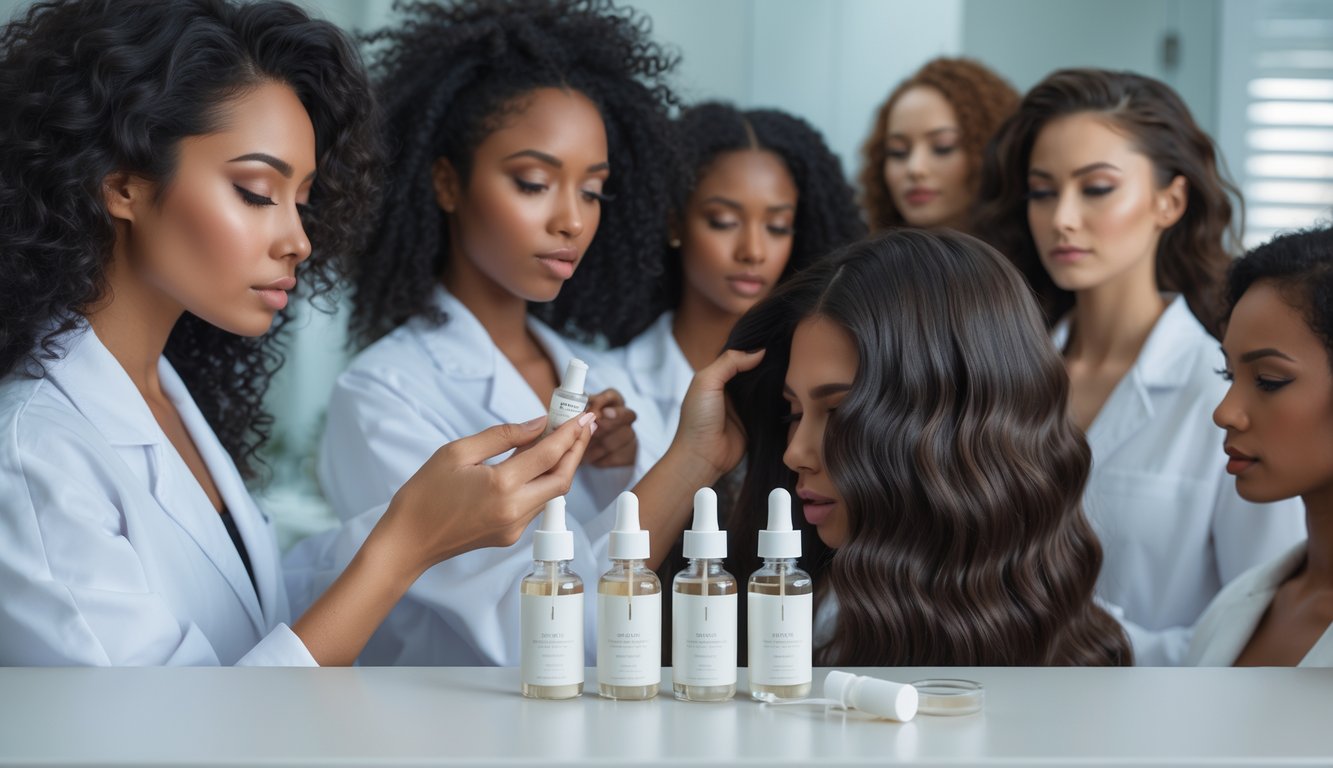
Every time I buy another “miracle” hair serum, I wonder if I’m just paying for hope and a nice glass bottle. They promise everything: scalp health, shine, moisture, heat protection. No two formulas ever seem to work the same way—even when they both claim minoxidil or caffeine. Allure went deep on this earlier this year, but honestly, the hype never stops. Especially if you’ve got a dermatologist’s voice in your head, telling you to chill out and stop believing the bottle.
Defining Hair Serums
Half the time, I don’t even know if a serum’s for my ends, my scalp, or just to make me feel like I’m doing something. Basically, it’s a lightweight, usually silicone-y liquid, and you get it out with a dropper or a pump. The “women’s” part? Marketing, plain and simple. Dr. Shari Marchbein once told me, “Most serums—gender aside—target frizz, dryness, or scalp irritation, but rarely all at once.” Yeah, that never makes it onto the label.
Ingredient lists? Peptides, hyaluronic acid, herbal extracts—sometimes at such tiny amounts you need a microscope. Pro tip: if it’s not one of the first five ingredients, don’t expect miracles. Most “growth” serums only do anything if they’ve got real studies behind them. “Healthier hair” is basically code for “we hope you don’t ask too many questions.”
Key Purposes and Uses
“REHYDRATION!” screams the box, but results are all over the place. Some serums are for frizz, static, or pollution—which, great, except my hair still freaks out on humid subway rides. Others say they’ll boost growth right at the scalp (Vegamour GRO Hair Serum, anyone?).
Derms sometimes call out specific ingredients: caffeine, minoxidil, panthenol, niacinamide, whatever’s trendy this week. Layering five serums at once? I’ve done it. Don’t. Pick what actually bothers you—shedding, limpness, whatever—and check how your routine just chews up any moisture you try to add. I trust ingredient lists more than glossy photos. Always.
Difference Between Hair Serums and Oils
Why do people still confuse these? I’ve spilled both and still can’t always tell. Oils—argan, coconut, olive—are heavy, meant to seal in moisture after washing. Serums? Lighter, slip through hair, disappear fast.
One time I used both on the same chunk of hair. The oil flattened everything, the serum just smoothed for a bit. Some stylists say to mix them, but unless your hair is straw, you’ll just get gunked-up roots.
Table: Key Differences
| Feature | Hair Serum | Hair Oil |
|---|---|---|
| Texture | Lightweight, often silicone-based | Heavier, oily |
| Main Function | Smooths, targets damage, protects | Locks in moisture |
| Application | Wet or dry hair, roots or ends | Mostly on ends |
| Wash Out | Usually easy | Sometimes requires clarifying shampoo |
Labels are no help. Unless you like washing your hair every day (who does?), just pick one, read the ingredient list, and don’t fall for the pretty packaging. Oils don’t really do much for scalp health, but people keep buying them for “growth.” Why? No idea.
Common Ingredients in Hair Growth Serums
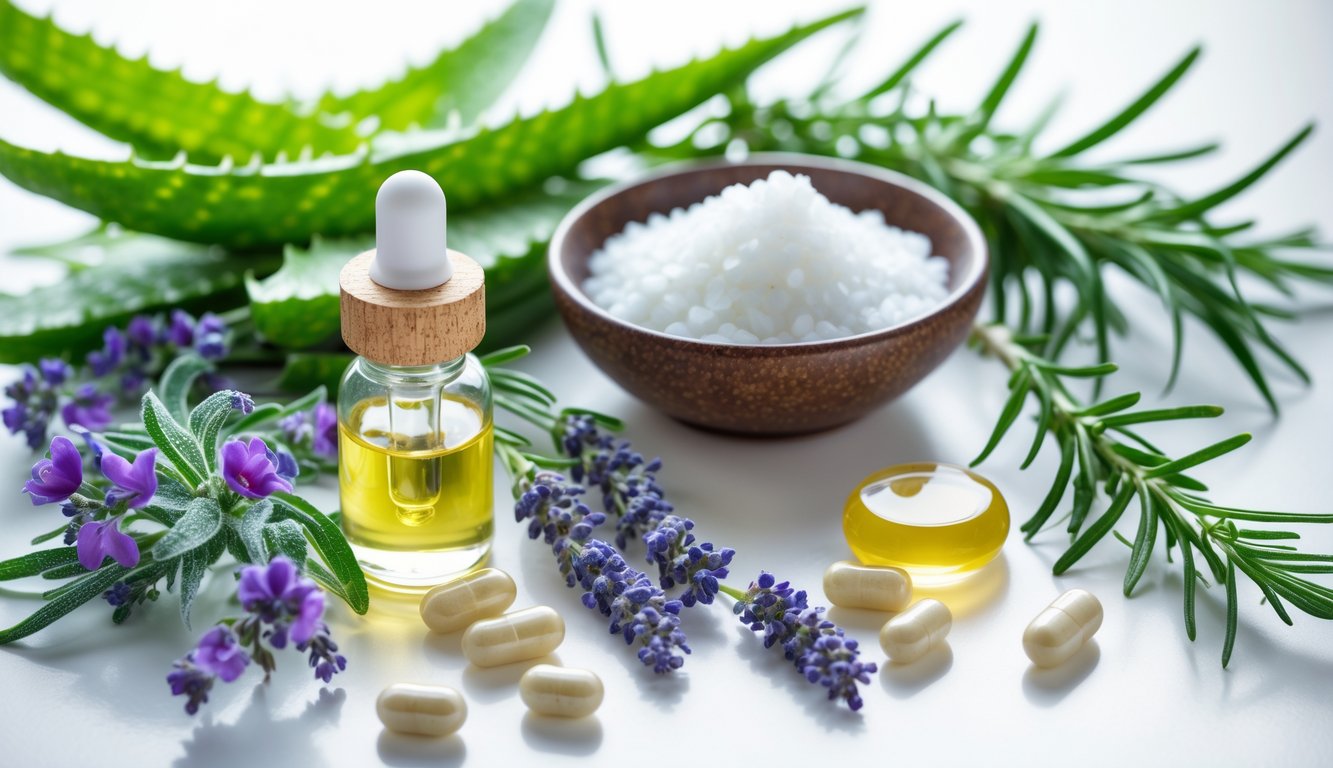
These ingredient lists—tiny print, half unpronounceable—are everywhere, but the same stuff pops up again and again. Dermatologists argue, but the bottles don’t lie: plant oils, peptides, weird natural powders, and always some vitamin I probably forgot to take last week.
Plant Extracts and Essential Oils
My bathroom is a shrine to plants. Rosemary oil gets all the hype. Is it magic? TikTok says yes, but the science is wishy-washy. That 2015 study (Panahi et al.) compared rosemary to minoxidil—neither one worked miracles, and the difference was barely there. Still, everyone’s obsessed.
Green tea, ashwagandha, amla… sometimes I think I’m making tea, not washing my hair. Pumpkin seed oil claims to block DHT, but I’ve never met a dermatologist who’ll back it up without a disclaimer. Betaine? It’s in there for “moisture,” but I’m skeptical. Watch out for essential oils, too—they can make your scalp freak out. Patch test, always.
My most allergic friend bought an apple cider vinegar serum for “pH balance.” Smelled like salad, worked about as well. No dermatologist has given me a straight answer on that one.
Peptides and Proteins
Peptides—tiny chains, vaguely remembered from high school science—are everywhere in fancy serums. Supposedly they “wake up” follicles. Does that mean anything? Maybe. Arginine, keratin, all that jazz, slathered on for “conditioning.” Dr. Garshick told Health the science is “promising but not definitive.” Translation: we don’t really know.
One brand bragged about a “proprietary peptide blend.” I called them and got a script about “stimulating the hair bulb.” Honestly, sounds more like marketing than medicine. Keratin gets thrown in for “strength,” but unless you’re using minoxidil too, don’t expect big changes. Zinc sometimes sneaks in, but it barely gets into your scalp—confirmed by a trichologist who sounded bored even saying it. Still, I keep trying, just in case.
Vegan and Natural Formulations
Decoding “vegan” or “natural” serum labels is a nightmare. Usually, it just means no animal stuff—so no classic keratin, maybe some plant-based peptides or amino acids instead. The bottle screams “clean beauty,” but it’s packed with turmeric or aloe. Do those grow hair? Meh.
“Cruelty-free,” “plant-powered”—nice, but does it matter for results? Most evidence just shrugs. Sometimes you see amla or turmeric for “anti-inflammatory” effects, but my scalp just tingles and doesn’t seem any thicker. Hyaluronic acid pops up, too—feels more like a face serum, but apparently it “hydrates.”
I wasted too much time doing price-per-ounce math on a vegan pumpkin seed serum promising “volume.” Did it deliver? Define “volume.” The scent stuck around longer than any improvement.
Antioxidants and Vitamins
Antioxidants—so, stuff that fights damage from sun or pollution, I think? Vitamin B5 (panthenol) is everywhere, “nourishing” strands. Niacinamide? It’s all over skincare, now it’s in hair stuff for “strength.” Biotin in serums? Dermatologists roll their eyes—oral supplements are still the trendier play.
Green tea and amla show up for their “antioxidant” claims. Zinc is there for “scalp-calming,” but if you’re really zinc-deficient, you’d see a doctor, not just buy a serum. Some brands blend a bunch of antioxidants and call it a day. Sometimes feels like I’m buying a smoothie, not a hair product.
Last month I tried a serum with vitamin E and hyaluronic acid. Logic: antioxidants plus moisture equals strong hair, right? My hair looked shiny for maybe an hour. Real “health” changes? Not that I noticed.

